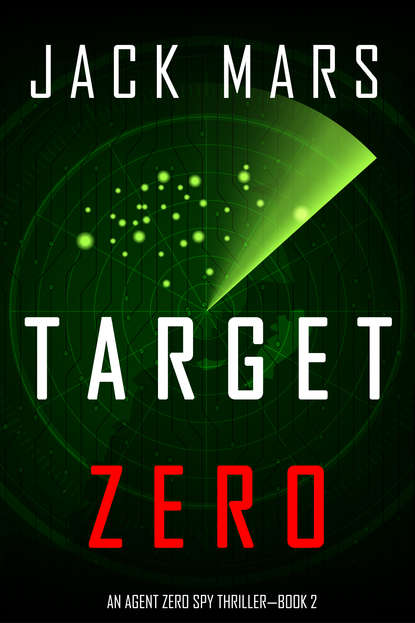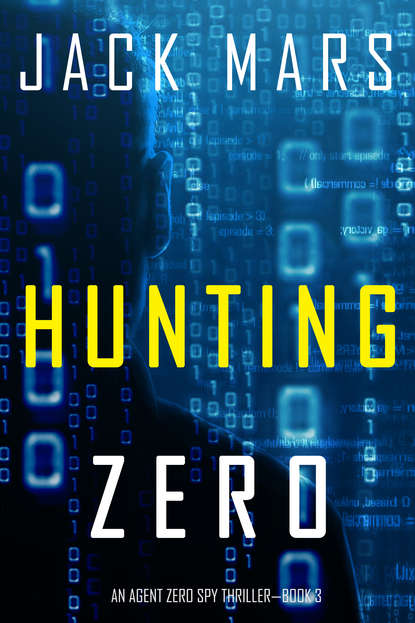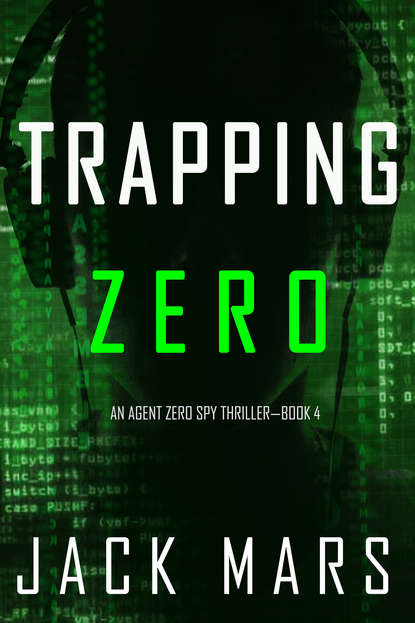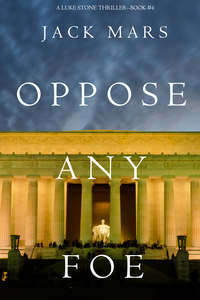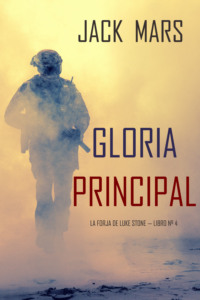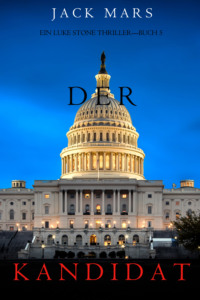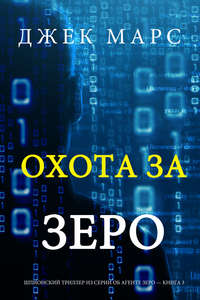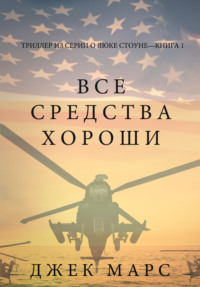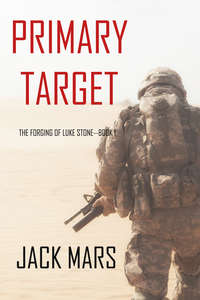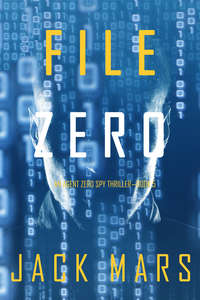
Полная версия
Agent Zero
Reid shook the muddled sequence from his brain as the interrogator took a seat in the chair across from him.
“You did something to me,” he muttered.
“Yes,” the interrogator agreed. “We have liberated you from a mental prison.” He leaned forward with his tight smirk, searching Reid’s eyes for something. “You’re remembering. This is fascinating to watch. You’re confused. Your pupils are abnormally dilated, despite the light. What is real, ‘Professor Lawson’?”
The sheikh. By any means necessary.
“When our memories fail us…”
Last known whereabouts: Safe house in Tehran.
“Who are we?”
A bullet sounds the same in every language… Who said that?
“Who do we become?”
You said that.
Reid felt himself slipping again into the void. The interrogator slapped him twice, jarring him back to the concrete room. “Now we may continue in earnest. So I ask you again. What… is… your… name?”
You enter the interrogation room alone. The suspect is cuffed to a looped bolt in the table. You reach into your inner suit pocket and produce a leather-bound ID badge and open it…
“Reid. Lawson.” His voice was uncertain. “I’m a professor… of European history…”
The interrogator sighed disappointedly. He beckoned with one finger to the brutish, scowling man. A heavy fist plowed into Reid’s cheek. A molar bounced across the floor in a wake of fresh blood.
For a moment, there was no pain; his face was numb, pulsing with the impact. Then a fresh, nebulous agony took over.
“Nnggh…” He tried to form words, but his lips would not move.
“I ask you again,” said the interrogator. “Tehran?”
The sheikh was holed up in a safe house disguised as an abandoned textile factory.
“Zagreb?”
Two Iranian men are apprehended on a private airstrip, about to board a chartered plane to Paris.
“Madrid?”
The Ritz, fifth floor: an activated sleeper cell with a suitcase bomb. Suspected destination: the Plaza de Cibeles.
“Sheikh Mustafar?”
He bargained for his life. Gave us everything he knew. Names, locations, plans. But he only knew so much…
“I know you are remembering,” said the interrogator. “Your eyes betray you… Zero.”
Zero. An image flashed in his head: A man in aviator sunglasses and a dark motorcycle jacket. He stands on the street corner in some European city. Moves with the crowd. No one is aware. No one knows he’s there.
Reid tried again to shake the visions from his head. What was happening to him? The images danced in his head like stop-motion sequences, but he refused to acknowledge them as memories. They were false. Implanted, somehow. He was a university professor, with two teenage girls and a humble home in the Bronx…
“Tell us what you know of our plans,” the interrogator demanded flatly.
We don’t talk. Ever.
The words echoed through the cavern of his mind, over and over. We don’t talk. Ever.
“This is taking too long!” shouted the tall Iranian man. “Coerce him.”
The interrogator sighed. He reached for the metal cart—but not to turn on the polygraph machine. Instead, his fingers lingered over the plastic tray. “I am generally a patient man,” he told Reid. “But I admit, my associate’s frustration is somewhat contagious.” He plucked up the bloody scalpel, the tool he had used to cut the small silver grain from his head, and he gently pressed the tip of the blade against Reid’s denim jeans, about four inches above the knee. “All we want to know is what you know. Names. Dates. Who you’ve told about what you know. The identities of your fellow agents in the field.”
Morris. Reidigger. Johansson. Names flashed across his mind, and with each came a face that he had never seen before. A younger man with dark hair and a cocky smile. A round-faced, friendly-looking guy in a starched white shirt. A woman with flowing blonde hair and steely, gray eyes.
“And what became of the sheikh.”
Somehow Reid was suddenly aware that the sheikh in question had been detained and taken to a black site in Morocco. It wasn’t a vision. He simply knew.
We don’t talk. Ever.
A cold chill ran down Reid’s spine as he struggled to maintain some semblance of sanity.
“Tell me,” the interrogator insisted.
“I don’t know.” The words felt strange rolling from his swollen tongue. He glanced up in alarm and saw the other man smirking back at him.
He had understood the foreign demand… and answered back in flawless Arabic.
The interrogator pushed the tip of the scalpel into Reid’s leg. He screamed as the knife penetrated the muscle of his thigh. He instinctively tried to pull his leg away, but his ankles were bound to the chair legs.
He clenched his teeth hard, his jaw aching in protest. The wound in his leg burned fiercely.
The interrogator smirked and cocked his head slightly. “I will admit, you’re tougher than most, Zero,” he said in English. “Unfortunately for you, I am a professional.” He reached down and slowly tugged off one of Reid’s now-filthy socks. “I don’t get to resort to this tactic often.” He straightened and stared Reid directly in the eye. “Here is what is going to happen next: I am going to cut off small pieces of you, and show you each one. We will begin with your toes. Then the fingers. After that… we will see where we stand.” The interrogator knelt and pressed the blade against the smallest toe of his right foot.
“Wait,” Reid pleaded. “Please, just wait.”
The other two men in the room gathered on either side, watching with interest.
Desperate, Reid fingered the ropes that held his wrists in place. It was an inline knot with two opposing loops tied with half hitches…
An intense shiver ran from the base of his spine to his shoulders. He knew. Somehow he just knew. He had an intense feeling of déjà vu, as if he had been in this situation before—or rather, these insane visions somehow implanted in his head told him he had.
But most importantly, he knew what he had to do.
“I’ll tell you!” Reid panted. “I’ll tell you what you want to know.”
The interrogator glanced up. “Yes? Good. First, however, I am still going to remove this toe. I would not want you to believe that I was bluffing.”
Behind the chair, Reid gripped his left thumb in his opposite hand. He held his breath and jerked hard. He felt the pop as the thumb dislocated. He waited for the sharp, intense pain to come, but it was little more than a dull throb.
A new realization struck him—this was not the first time that had happened to him.
The interrogator sliced into the skin of his toe and he yelped. With his thumb opposite its normal angle, he slipped his hand free of its bonds. With one loop open, the other gave way.
His hands were free. But he had no idea what to do with them.
The interrogator glanced up and his brow furrowed in confusion. “What…?”
Before he could utter another word, Reid’s right hand shot out and grabbed the first implement it closed on—a black-handled precision knife. As the interrogator tried to stand, Reid pulled his hand back. The blade raked across the man’s carotid.
Both hands flew to his throat. Blood eked between his fingers as the wide-eyed interrogator collapsed to the floor.
The hulking brute roared in fury as he lunged forward. He wrapped both meaty hands around Reid’s throat and squeezed. Reid tried to think, but fear gripped him.
Next thing he knew, he lifted the precision knife again and jammed it into the brute’s inner wrist. He twisted his shoulders as he pushed, and opened an avenue up the length of the man’s forearm. The brute screamed and fell, clutching his grievous injury.
The tall, thin man stared in disbelief. Much like before, on the street in front of Reid’s house, he seemed hesitant to approach him. Instead, he fumbled for the plastic tray and a weapon. He grabbed a curved blade and stabbed straight for Reid’s chest.
Reid threw his body weight backward, toppling the chair and narrowly avoiding the knife. At the same time, he forced his legs outward as hard as he could. As the chair hit the concrete, the legs broke off from the frame. Reid stood and nearly stumbled, his legs weak.
The tall man shouted for help in Arabic, and then slashed the air indiscriminately with the knife, back and forth in wide sweeps to keep Reid at bay. Reid kept his distance, watching the silver blade swing hypnotically. The man swept right, and Reid lunged, trapping the arm—and the knife—between their bodies. His momentum drove them forward, and as the Iranian toppled, Reid twisted and neatly sliced through the femoral artery on the back of his thigh. He planted a foot and swished the knife the opposite way, piercing the jugular.
He didn’t know how he knew, but he knew that the man had about forty-seven seconds of life left.
Feet pounded a staircase from nearby. Fingers shaking, Reid dashed to the open doorway and flattened himself against one side. The first thing through was a gun—he immediately identified it as a Beretta 92 FS—and an arm followed, and then a torso. Reid spun, caught the gun in the crook of his elbow, and slid the precision knife sideways between two ribs. The blade pierced the man’s heart. A cry caught on his lips as he slid to the floor.
Then there was only silence.
Reid staggered backward. His breathing came in shallow gulps.
“Oh god,” he breathed. “Oh god.”
He had just killed—no, he had just murdered four men in the span of several seconds. Even worse was that it was kneejerk, reflexive, like riding a bike. Or suddenly speaking Arabic. Or knowing the sheikh’s fate.
He was a professor. He had memories. He had children. A career. But clearly his body knew how to fight, even if he didn’t. He knew how to escape from bonds. He knew where to deliver a lethal blow.
“What is happening to me?” he gasped.
He covered his eyes briefly as a roiling wave of nausea washed over him. There was blood on his hands—literally. Blood on his shirt. As the adrenaline subsided, the aches permeated through his limbs from being stationary for so long. His ankle still throbbed from leaping off his deck. He’d been stabbed in the leg. He had an open wound behind his ear.
He didn’t even want to think about how his face might look.
Get out, his brain screamed at him. More may come.
“Okay,” Reid said aloud, as if he were assenting to someone else in the room. He calmed his breathing as best he could and scanned his surroundings. His unfocused eyes fell on certain details—the Beretta. A rectangular lump in the interrogator’s pocket. A strange mark on the neck of the brute.
He knelt beside the hulking man and stared at the scar. It was near the jaw line, partially obscured by beard, and no bigger than a dime. It appeared to be some sort of brand, burned into the skin, and looked similar to a glyph, like some letter in another alphabet. But he didn’t recognize it. Reid examined it for several seconds, etching it into his memory.
He quickly rifled through the dead interrogator’s pocket and found an ancient brick of a cell phone. Likely a burner, his brain told him. In the tall man’s back pocket he found a scrap of torn white paper, one corner stained with blood. In a scrawling, nearly illegible hand was a long series of digits that began with 963—the country code to make an international call to Syria.
None of the men had any identification, but the would-be shooter had a thick billfold of euro banknotes, easily a few thousand. Reid pocketed that as well, and then lastly, he took the Beretta. The pistol’s weight felt oddly natural in his hands. Nine-millimeter caliber. Fifteen-round magazine. One-hundred-twenty-five-millimeter barrel.
His hands expertly ejected the clip in a fluid motion, as if someone else were controlling them. Thirteen rounds. He pushed it back in and cocked it.
Then he got the hell out of there.
Outside the thick steel door was a dingy hall that ended in a staircase going up. At the top of it was evidence of daylight. Reid climbed the stairs carefully, the pistol aloft, but he heard nothing. The air grew cooler as he ascended.
He found himself in a small, filthy kitchen, the paint peeling from the walls and dishes caked in grime piled high in the sink. The windows were translucent; they had been smeared with grease. The radiator in the corner was cold to the touch.
Reid cleared the rest of the small house; there was no one besides the four dead men in the basement. The single bathroom was in far worse shape than the kitchen, but Reid found a seemingly ancient first-aid kit. He didn’t dare look at himself in the mirror as he washed as much blood as he could from his face and neck. Everything from head to toe stung, ached, or burned. The tiny tube of antiseptic ointment had expired three years earlier, but he used it anyway, wincing as he pressed bandages over his open cuts.
Then he sat on the toilet and held his head in his hands, taking a brief moment to get a grip. You could leave, he told himself. You have money. Go to the airport. No, you don’t have a passport. Go to the embassy. Or find a consulate. But…
But he had just killed four men, and his own blood was all over the basement. And there was the other, clearer problem.
“I don’t know who I am,” he murmured aloud.
Those flashes, those visions that stalked his mind, they were from his perspective. His point of view. But he had never, would never do anything like that. Memory suppression, the interrogator had said. Was that even possible? He thought again of his girls. Were they safe? Were they scared? Were they… his?
That notion jarred him to his core. What if, somehow, what he thought was real wasn’t real at all?
No, he told himself adamantly. They were his daughters. He was there for their birth. He raised them. None of these bizarre, intrusive visions contradicted that. And he needed to find a way to contact them, to make sure they were all right. That was his top priority. There was no way he would use the burner phone to contact his family; he didn’t know if it was being traced or who might be listening in.
He suddenly remembered the slip of paper with the phone number on it. He stood and pulled it out of his pocket. The bloodstained paper stared back at him. He didn’t know what this was about or why they thought he was anyone different than who he said he was, but there was a shade of urgency beneath the surface of his subconscious, something telling him that he was now unwillingly involved in something that was much, much bigger than him.
His hands shaking, he dialed the number on the burner.
A gruff male voice answered on the second tone. “Is it done?” he asked in Arabic.
“Yes,” Reid replied. He tried to mask his voice as best he could and affect an accent.
“You have the information?”
“Mm.”
The voice was silent for a long moment. Reid’s heart pounded in his chest. Had they realized it wasn’t the interrogator?
“187 Rue de Stalingrad,” the man said finally. “Eight p.m.” And he hung up.
Reid ended the call and took a deep breath. Rue de Stalingrad? he thought. In France?
He wasn’t sure what he was going to do yet. His mind felt like he had broken through a wall and discovered a whole other chamber on the other side. He couldn’t return home without knowing what was happening to him. Even if he did, how long would it be until they found him, and the girls, again? He had only one lead. He had to follow it.
He stepped out of the small house and found himself in a narrow alley, the mouth of which opened onto a street called Rue Marceau. He immediately knew where he was—a suburb of Paris, mere blocks from the Seine. He almost laughed. He thought he would be stepping out into the war-torn streets of a Middle Eastern city. Instead, he found a boulevard lined with shops and row homes, unassuming passersby enjoying their casual afternoon, bundled against the chilly February breeze.
He tucked the pistol into the waistband of his jeans and stepped out onto the street, blending in with the crowd and trying not to draw any attention to his blood-stained shirt, bandages, or obvious bruises. He hugged his arms close to him—he would need some new clothes, a jacket, something warmer than just his shirt.
He needed to make sure his girls were safe.
Then he would get some answers.
CHAPTER FOUR
Walking the streets of Paris felt like a dream—just not in the way that anyone would expect or even desire. Reid reached the intersection of Rue de Berri and Avenue des Champs-Élysées, ever the tourist hotspot despite the chilly weather. The Arc de Triomphe loomed several blocks away to the northwest, the centerpiece of Place Charles de Gaulle, but its grandeur was lost on Reid. A new vision flashed across his mind.
I’ve been here before. I’ve stood in this spot and looked up at this street sign. Wearing jeans and a black motorcycle jacket, the colors of the world muted by polarized sunglasses…
He turned right. He wasn’t sure what he would find this way, but he had the eerie suspicion that he would recognize it as he saw it. It was an incredibly bizarre sensation to not know where he was going until he got there.
It felt as if every new sight brought on some vignette of vague recollection, each disconnected from the next, yet still somehow congruent. He knew that the café on the corner served the best pastis he would ever taste. The sweet scent of the patisserie across the street made his mouth water for savory palmiers. He had never tasted palmiers before. Had he?
Even sounds jarred him. Passersby chattered idly to one another as they strolled the boulevard, occasionally stealing glances at his bandaged, bruised face.
“I would hate to see the other guy,” a young Frenchman muttered to his girlfriend. They both chuckled.
Okay, don’t panic, Reid thought. Apparently you know Arabic and French. The only other language that Professor Lawson spoke was German and a few phrases in Spanish.
There was something else too, something harder to define. Beneath his rattling nerves and instinct to run, to go home, to hide somewhere, beneath all of that there was a cold, steely reserve. It was like having the heavy hand of an older brother on his shoulder, a voice in the back of his mind saying, Relax. You know all of this.
While that voice ushered him softly from the back of his mind, on the forefront was his girls and their safety. Where were they? What were they thinking right then? What would it mean for them if they lost both parents?
He had never stopped thinking about them. Even as he was being beaten in the dingy basement prison, even as these flashes of visions were intruding on his mind, he had been thinking about the girls—particularly that last question. What would happen to them if he had died down there in that basement? Or if he died doing the very foolhardy thing that he was about to do?
He had to make sure. He had to reach out somehow.
But first, he needed a jacket, and not just to cover his bloodstained shirt. The February weather was approaching fifty degrees, but still too chilly for just a shirt. The boulevard acted as a wind tunnel and the breeze was brisk. He ducked into the next clothing boutique and chose the first coat that caught his eye—a dark brown bomber jacket, leather with a fleece lining. Strange, he thought. He would never have picked a jacket like this before, what with his tweed and plaid fashion sense, but he was drawn to it.
The bomber jacket was two hundred and forty euros. No matter; he had a pocketful of money. He picked out a new shirt as well, a slate-gray tee, and then a pair of jeans, new socks, and sturdy brown boots. He brought all his purchases up to the counter and paid in cash.
There was a thumbprint of blood on one of the bills. The thin-lipped clerk pretended not to notice. A strobe-like flash in his mind—
“A guy walks into a gas station covered in blood. He pays for his fuel and starts to leave. The bewildered attendant calls out, ‘Hey, man, are you okay?’ The guy smiles. ‘Oh yeah, I’m fine. It’s not my blood.’”
I’ve never heard that joke before.
“May I use your changing room?” Reid asked in French.
The clerk pointed toward the rear of the store. He hadn’t said a single word during the entire transaction.
Before changing, Reid examined himself for the first time in a clean mirror. Jesus, he looked awful. His right eye was swelling fiercely and blood was staining the bandages. He’d have to find a drug store and buy some decent first-aid supplies. He slid his now-filthy and somewhat bloody jeans down over his wounded thigh, wincing as he did. Something clattered to the floor, startling him. The Beretta. He’d nearly forgotten he had it.
The pistol was heavier than he would have imagined. Nine hundred forty-five grams, unloaded, he knew. Holding it was like embracing a former lover, familiar and foreign at the same time. He set it down and finished changing, stuffed his old clothes in the shopping bag, and tucked the pistol into the waistband of his new jeans, at the small of his back.
Out on the boulevard, Reid kept his head low and walked briskly, staring down at the sidewalk. He didn’t need more visions distracting him right now. He tossed the bag of old clothes in a trash can on a corner without missing a step.
“Oh! Excusez-moi,” he apologized as his shoulder bumped roughly into a passing woman in a business suit. She glared at him. “So sorry.” She huffed and stalked off. He stuffed his hands in his jacket pockets—along with the cell phone he had swiped from her purse.
It was easy. Too easy.
Two blocks away, he ducked under a department store awning and took out the phone. He breathed a sigh of relief—he’d targeted the businesswoman for a reason, and his instinct paid off. She had Skype installed on her phone and an account linked to an American number.
He opened the phone’s Internet browser, looked up the number to Pap’s Deli in the Bronx, and called.
A young male voice answered quickly. “Pap’s, how can I help you?”
“Ronnie?” One of his students from the year prior worked part time at Reid’s favorite deli. “It’s Professor Lawson.”
“Hey, Professor!” the young man said brightly. “How’s it going? You want to put in a takeout order?”
“No. Yes… sort of. Listen, I need a really big favor, Ronnie.” Pap’s Deli was only six blocks from his house. On pleasant days, he would often walk the distance to pick up sandwiches. “Do you have Skype on your phone?”
“Yeah?” said Ronnie, a confused lilt in his voice.
“Good. Here’s what I need you to do. Write down this number…” He instructed the kid to make a quick run down to his house, see who, if anyone, was there, and call back the American number on the phone.
“Professor, are you in some kind of trouble?”
“No, Ronnie, I’m fine,” he lied. “I lost my phone and a nice woman is letting me use hers to let my kids know I’m okay. But I only have a few minutes. So if you could, please…”
“Say no more, Professor. Happy to help. I’ll hit you back in a few.” Ronnie hung up.
While he waited, Reid paced the short span of the awning, checking the phone every few seconds in case he missed the call. It felt like an hour passed before it rang again, though it had only been six minutes.
“Hello?” He answered the Skype call on the first ring. “Ronnie?”
“Reid, is that you?” A frantic female voice.
“Linda!” Reid said breathlessly. “I’m glad you’re there. Listen, I need to know—”
“Reid, what happened? Where are you?” she demanded.
“The girls, are they at the—”
“What’s happened?” Linda interrupted. “The girls woke up this morning, freaking out because you were gone, so they called me and I came right over…”
“Linda, please,” he tried to interject, “where are they?”
She talked over him, clearly distraught. Linda was a lot of things, but good in a crisis wasn’t one of them. “Maya said that sometimes you go for walks in the morning, but both the front and back doors were open, and she wanted to call the police because she said you never leave your phone at home, and now this boy shows up from the deli and hands me a phone—?”


